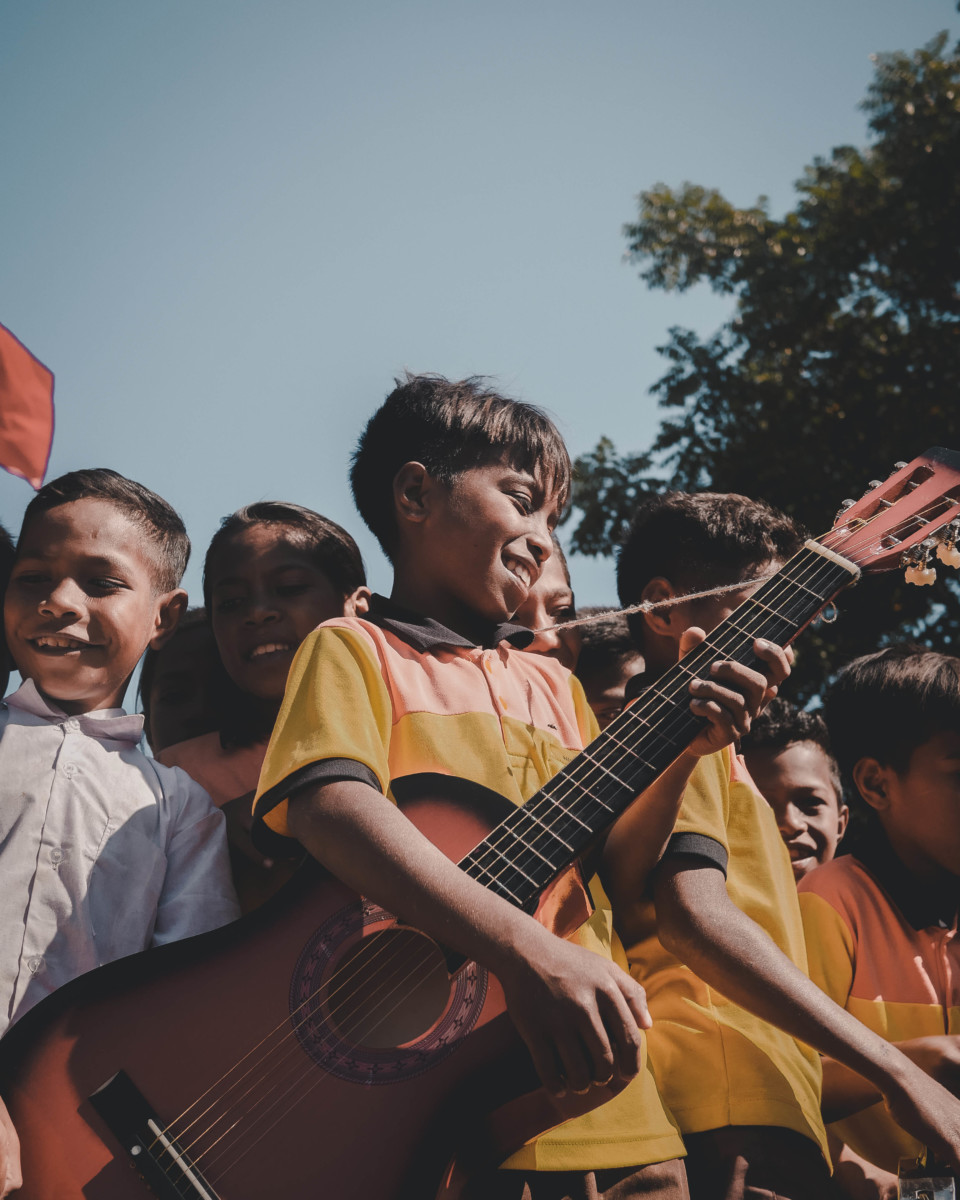
Not your ordinary trip
A Catholic Mission Immersion is not your ordinary travel experience. As MacKillop Catholic College Hobart recently discovered, it is about being open to new perspectives and reflecting deeply on shared experiences.
A Catholic Mission immersion is not your ordinary travel experience. In fact, so deliberate is the planning and execution of a Catholic Mission immersion that it is easier to say what it isn’t than what it is. And it most certainly isn’t a holiday.
Patrick Fox, Catholic Mission’s Education Manager for the Immersion Programme, says each immersion is delivered in three phases to ensure participants are prepared and can properly reflect on the impact of their individual and shared experience.
‘It is really a challenging experience of personal growth,’ he says. ‘It is not a lengthy experience, but it is deeply immersive and intended to open participants’ minds to new perspectives on mission in the world.’
Phase one of the immersion programme involves preparation, where participants are given some context of the destination country, as well as a cross-cultural briefing. They are encouraged to share what they expect to take away from the experience and a connection is made between the goals of the immersion and the school’s understanding of mission.
Phase two is the trip itself—ten to twelve days with a small group of up to fifteen participants who live as the local people live.
Mr Fox says the most interesting perspectives and learnings often emerge in phase three, during the debrief. ‘I often ask students if the experience has changed their minds about career options, as I know it has done for others,’ he said.
It was during this final phase, with an immersion group from MacKillop Catholic College Hobart who had returned from a ten-day trip to Timor-Leste, that one student gave the kind of reflection the Catholic Mission Immersions team looks for.
‘He said, “The immersion hasn’t so much changed my career choice, but it has definitely changed my mindset in whatever career I choose”,’ recalls Mr Fox. ‘That kind of humility and openness means we’re doing something right.’
When Mr Fox invited the student to elaborate, the whole group was able to answer together.
‘Well I understand now that happiness doesn’t come from what you have, but from how many other people ‘see you’ in the community and how much you feel you belong,’ said one.
“I can redefine poverty and success. We are the poor ones, even though we have so many material resources. We are really poor because we don’t smile and greet each other, we don’t trust or accept each other, we judge by appearances, and we’re not happy.”
– Student reflection, MacKillop Catholic College Hobart
‘Trust is important; trusting others and welcoming them and beginning from an attitude of trust,’ said another.
Others spoke of understanding a need to be more compassionate and understanding towards others, and the happiness that comes from that.
‘When I was listening to these responses, I was blown away by the level of understanding that this experience had unlocked in the hearts and minds of the students,’ said Mr Fox.
‘That’s what’s so important about this process. The compassion and empathy are already there for the participants. The immersion experience just gives them access to a different perspective that brings out those characteristics in a whole new way.’

It was MacKillop Catholic College’s fifth immersion trip with Catholic Mission, with a sixth confirmed for 2020. The school considers the program so integral to their charism and faith formation that the participants are grouped in one Religious Education class from the start of the year, and begin in-class preparation months in advance, as well as running fundraising events sometimes a year out.
The college has been building their relationship with Timor-Leste since 2013. They support the MacKillop Today foundation in Dili and spent a day there during their July immersion, learning how the Josephite Foundation is supporting the teaching effort across a nation that is not quite twenty years old, by producing materials in Tetun, the native language, and running teacher training programs.
The visiting group was hosted mainly by Fr Julio and the Maumeta parish on Atauro Island, a two-hour boat trip off the coast of Dili. While staying in Maumeta the group visited the local primary and junior secondary schools and did day trips to two very remote villages, Makilli and Makardi.
The schoolchildren in Makardi had never received a visit from children from another country (except for foreign UN officials). During the visits, the Australian students helped teach conversational English, participated in sports and games, Mass and even cultural dancing.

When they are back on Australian soil, the participants continue to unpack the learning from the experience, reflecting on how it has shaped their worldview. It is an essential process for the Immersion programme to achieve its goals, and one which forms part of their final religious education assessment.
Of the “goldfield of learning” that Mr Fox discovered when he travelled to Hobart to lead the phase three debrief session with the students, one student offered a particularly sizable nugget of wisdom about how the experience had changed her.
‘I can redefine poverty and success,’ she said. ‘We are the poor ones, even though we have so many material resources. We are really poor because we don’t smile and greet each other, we don’t trust or accept each other, we judge by appearances, and we’re not happy.’
There’s nothing “ordinary” about this travel experience. Far from it.